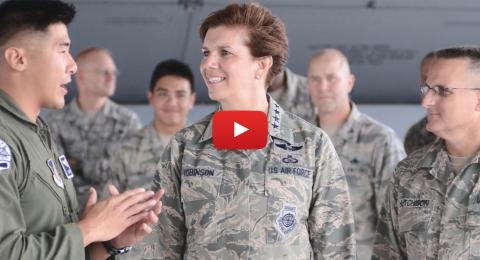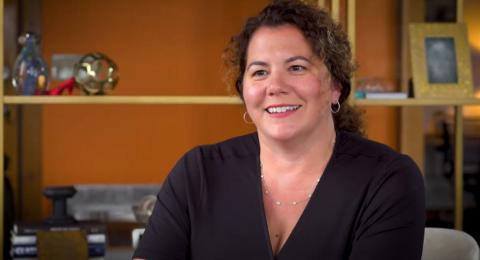What is English?
You love reading novels, you love to write, or you’re fascinated with the origins of the English language. These are all good reasons to pursue a degree in English, which will give you broad exposure to the history and literature of the English language, while you also learn critical thinking skills and how to write clearly and persuasively. English majors are experts in the art and science of words, allowing you to expand your imaginative potential and solve real-world problems.
Why study English at UNH?
requirements, you’ll be able to focus your studies on literature; writing, including fiction, creative non-fiction and poetry; or areas within linguistics, such as language formation. Other program highlights include our small discussion-and research-oriented seminars; internships with publishers, businesses, and arts and service organizations; and study-abroad opportunities in London, England.
Potential careers
- Business executive
- Communications specialist
- Editor
- Government consultant
- Lawyer
- Publisher
- Teacher
- Writer
Curriculum & Requirements
Our general English major has two objectives: provide our students with a common core of literary experience and expertise, and offer them the opportunity to shape a course of study suited to their personal interests. By offering flexible requirements, we encourage students to devise a path through coursework that has an intelligent rationale. Students whose primary interest is in literary studies can focus on our many offerings in that area; those who have a special interest in writing can take multiple writing courses in fiction, creative nonfiction and poetry writing (in addition to literature courses). Alternatively, they can match up courses from different areas in the department (say, literature and writing courses focused on poetry). Our major requirements encourage students to sample a range of courses in literature, linguistics, creative or nonfiction writing, and English teaching, so that students become familiar with the various strands of inquiry that compose contemporary English studies. The guiding principle of the general English major, then, is that it is open and liberal by design. It allows students to sample a variety of courses in order to study the operation of language from many perspectives.
If you're interested in majoring in English please contact Carla Cannizzaro, Senior Academic Advisor, Department of English, 230F Hamilton Smith Hall, (603) 862-1313.
Sample Degree Plan
This sample degree plan serves as a general guide; students collaborate with their academic advisor to develop a personalized degree plan to meet their academic goals and program requirements.
| First Year | ||
|---|---|---|
| Fall | Credits | |
| ENGL 401 | First-Year Writing 1 | 4 |
| Language Course | 4 | |
| Discovery Course | 4 | |
| Discovery Course or Major Course | 4 | |
| COLA 401A: First Year Seminar | 1 | |
| Credits | 17 | |
| Spring | ||
| ENGL 419 | How to Read Anything | 4 |
| Language Course | 4 | |
| Discovery Course | 4 | |
| Major/Minor/Discovery Course | 4 | |
| Credits | 16 | |
| Second Year | ||
| Fall | ||
| Major: Foundational Literature Survey | 4 | |
| Major Course 500/600-Level | 4 | |
| Discovery Course | 4 | |
| Major/Minor/Discovery Course | 4 | |
| Credits | 16 | |
| Spring | ||
| Major: Foundational Literature Survey | 4 | |
| Major Course 500/600-Level | 4 | |
| Discovery Course | 4 | |
| Major/Minor/Discovery Course | 4 | |
| Credits | 16 | |
| Third Year | ||
| Fall | ||
| Major Course | 4 | |
| Major Course | 4 | |
| Discovery Course | 4 | |
| Major/Minor/Discovery Course | 4 | |
| Credits | 16 | |
| Spring | ||
| Major Course | 4 | |
| Major Course | 4 | |
| Discovery Course | 4 | |
| Major/Minor/Discovery Course | 4 | |
| Credits | 16 | |
| Fourth Year | ||
| Fall | ||
| ENGL 787 | English Major Seminar (Capstone or Major Elective) | 4 |
| Major Elective Course | 4 | |
| Elective Course | 4 | |
| Elective Course | 4 | |
| Credits | 16 | |
| Spring | ||
| ENGL 787 | English Major Seminar (Capstone or Major Elective) | 4 |
| Elective Course | 4 | |
| Elective Course | 4 | |
| Elective Course | 4 | |
| Credits | 16 | |
| Total Credits | 129 | |
- 1
Students who successfully apply AP or Transfer Credits towards the ENGL 401 ‘First Year Writing’ requirement may enroll in ENGL 419 during their first semester.
Degree Requirements
All Major, Option and Elective Requirements as indicated.
*Major GPA requirements as indicated.
Major Requirements
- Students must complete a minimum of 40 credits of with a minimum grade of C-.
- The required minimum overall GPA is 2.0.
- Only one online course may count toward major requirements.
- Capstone must be completed with a minimum grade of C.
- ENGL courses may not be double-counted across English major requirements.
| Code | Title | Credits |
|---|---|---|
| Required Courses | ||
| ENGL 419 | How to Read Anything (Minimum grade of C) | 4 |
| Code | Title | Credits |
|---|---|---|
| Foundational Surveys | ||
| Early Literature - Select one course from the following: | 4 | |
ENGL 512 | British Literature I Age of Heroes: Beowulf to Dr. Faustus | |
ENGL 513W | British Literature II Age of Revolutions: Shakespeare to Austen | |
| Modern Literature - Select one course from the following: | 4 | |
ENGL 514W | British Literature III: Revolts, Renewals, Migrations | |
ENGL 516W | American Literature II Money, Migration, and Modernity: Huck Finn to Beloved | |
ENGL 581 | Reading the Postcolonial Experience | |
| Code | Title | Credits |
|---|---|---|
| A. Linguistics & Writing | ||
| Select one course from the following: | 4 | |
ENGL 501 | Introduction to Creative Nonfiction | |
ENGL 502 | Professional and Technical Writing | |
ENGL 503 | Persuasive Writing | |
ENGL 526 | Introduction to Fiction Writing | |
ENGL 527 | Introduction to Poetry Writing | |
ENGL 534 | 21st Century Journalism: How the News Works | |
ENGL 623 | Creative Nonfiction | |
ENGL 625 | Intermediate Fiction Writing Workshop | |
ENGL 625A | Intermediate Fiction Writing Workshop: Screenwriting | |
ENGL 627 | Intermediate Poetry Writing Workshop | |
ENGL 701 | Advanced Fiction Writing Workshop | |
ENGL 703T | Travel Writing | |
ENGL 752 | History of the English Language | |
ENGL 791 | English Grammar | |
| Code | Title | Credits |
|---|---|---|
| B. Genres or Theory | ||
| Select one course from the following: | 4 | |
ENGL 510 | Introduction to the Digital Humanities | |
ENGL 518W | Bible as Literature | |
ENGL 520 | Dystopian and Post-Apocalyptic Fiction | |
ENGL 533 | Introduction to Film Studies | |
ENGL 555 | Science Fiction | |
ENGL 575 | Sex and Sensibility: The Rise of Chick Lit | |
ENGL 616A | Studies in Film/Genre | |
ENGL 616B | Studies in Film/Authorship | |
ENGL 616C | Studies in Film/Culture and Ideology | |
ENGL 616D | Studies in Film/Narrative and Style | |
ENGL 618 | Film Theory | |
ENGL 655 | Reading in all Directions: Comics and Graphic Narrative | |
ENGL 714 | Critical Skills | |
ENGL 736 | Environmental Theory | |
| Code | Title | Credits |
|---|---|---|
| C. Race, Gender and Postcolonial Studies | ||
| Select one course from the following: | 4 | |
ENGL 550 | Introduction to the Literature and Culture of Race | |
ENGL 690 | African American Literature | |
ENGL 738 | Asian American Studies | |
ENGL 778 | Race and Gender in Film and Popular Culture | |
| Code | Title | Credits |
|---|---|---|
| D. Literature before 1800 | ||
| Select one course from the following: | 4 | |
ENGL 657 | Shakespeare | |
ENGL 751 | Medieval Romance | |
ENGL 758 | Advanced Shakespeare | |
ENGL 759 | Milton | |
| Code | Title | Credits |
|---|---|---|
| E. Literature after 1800 | ||
| Select one course from the following: | 4 | |
ENGL 693 | Special Topics in Literature | |
ENGL 742 | American Literature, 1815-1865 | |
ENGL 775 | Modern Irish Literature: A Changing Landscape | |
ENGL 777 | The English Novel in the World | |
ENGL 784 | English Novel of the 19th Century | |
| Code | Title | Credits |
|---|---|---|
| Electives | ||
| Select two additional ENGL courses at the 600 or 700 level. | 8 | |
| Capstone | ||
| ENGL 787 | English Major Seminar | 4 |
Program Learning Outcomes
All undergraduate English majors acquire the same core skills. These include:
- Proficiency in analytical writing, critical thinking, and public-speaking.
- Knowledge of important literary genres and subgenres
- Fluency in literary terminology,
- A broad understanding of British-and-American literature, from the medieval period in England and the moment of first contact in America to the present day.
- Demonstrated proficiency in writing an analytical essay that offers a sophisticated close-reading or explication of a literary text. This essay will have a clear thesis and proceed in a logical fashion, with interpretive claims supported by evidence from the text.
- Demonstrated proficiency in literary research and in writing an extended thesis-driven research paper in which sources are correctly and responsibly cited.
- Demonstrated understanding of how to read across the color line in the US and /or how to analyze literary works written in English from outside the UK and the US--from India, Africa, and the Caribbean, for example.










